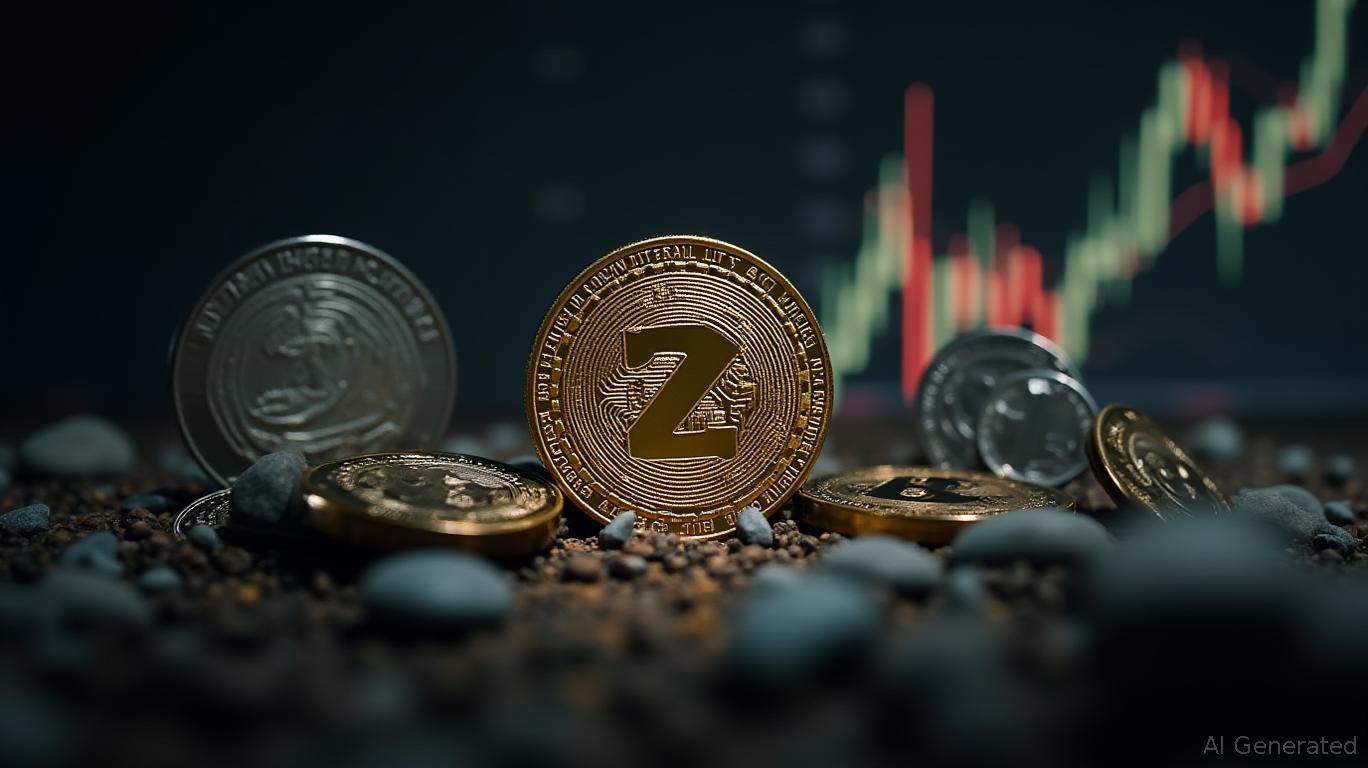South Korea Strives to Maintain Relations with Both U.S. and China as APEC Faces Ongoing Competition
- Trump's absence at 2025 APEC let China dominate as Xi promoted multilateral trade amid U.S.-China rivalry. - U.S.-South Korea $350B investment deal and China-U.S. tariff ceasefire highlighted shifting economic dynamics. - South Korea balanced bilateral ties while APEC nears consensus on protectionism and supply chain resilience. - China-ASEAN trade upgrades and AI partnerships underscored regional economic integration efforts. - Geopolitical tensions persist as APEC seeks fragile cooperation frameworks f
The 2025 Asia-Pacific Economic Cooperation (APEC) summit held in Gyeongju, South Korea, took place amid evolving global trade patterns. With U.S. President Donald Trump opting out of the main economic leaders' sessions, Chinese President Xi Jinping seized the opportunity to position China as a champion of open markets and multilateral cooperation. Trump's absence, following his earlier one-on-one meeting with Xi in Busan, highlighted the growing economic competition between the U.S. and China and drew attention to the region's attempts to manage the consequences.

Trump's shortened stay came after he concluded a controversial trade agreement with South Korea, which included tariff reductions in return for Seoul's commitment to invest $350 billion, as reported by
Xi's participation was a focal point at the summit, as his government used the event to push back against U.S. protectionism and reaffirm China's pledge to "uphold the multilateral trading system," according to
ABC News . ABC News also highlighted that Chinese representatives promoted cooperation on artificial intelligence regulation, demographic issues, and strengthening supply chains—key priorities for South Korea's APEC agenda. This approach fits with China's broader strategy to deepen economic links in the Asia-Pacific, as demonstrated by a newly enhanced China-ASEAN free trade pact signed by Premier Li Qiang just before the summit, according to MarketScreener .Other regional leaders took advantage of the changing environment. Canada's new Prime Minister Mark Carney met with Xi to push for greater trade diversification, with the goal of doubling exports to countries other than the U.S. over the next ten years. Talks centered on reducing tariffs for Canadian canola—a $5 billion sector facing a 75.8% Chinese tariff—and expanding opportunities for clean tech and critical minerals, according to
Meyka . Meanwhile, South Korean President Lee Jae Myung managed to secure a U.S. tariff cut in talks with Trump, while also holding separate discussions with Xi on economic collaboration, as Yonhap reported.The summit also saw movement toward collective agreements. After years of stalemate, APEC members were close to reaching a joint statement on issues like protectionism, digital standards, and supply chain risks, according to
Reuters . South Korean officials emphasized the need to avoid the deadlocks of 2018 and 2019, when U.S.-China disputes blocked unified declarations, as noted by U.S. News . Still, the anticipated declaration is likely to be less ambitious than previous versions, reflecting the differing priorities of member economies, according to Al Jazeera .Business alliances further highlighted the region's economic goals. Nvidia CEO Jensen Huang revealed new partnerships with Samsung, Hyundai, and SK Hynix to develop AI infrastructure, robotics, and autonomous vehicles, aiming to make South Korea a leader in future technology, according to
Republic World . Republic World also mentioned that Huang suggested U.S. authorities might soon permit AI chip sales to China again, though he acknowledged that Trump would have the final say on exporting advanced Blackwell chips.As the summit wrapped up, the combination of reduced U.S. engagement and China's proactive diplomacy left Asia-Pacific economies facing a complicated environment. While China's outreach and trade deals strengthened its regional position, experts pointed out that bilateral agreements alone may not be enough to offset the economic weight of the U.S., according to
Investing.com . For now, APEC's emphasis on resilience and partnership provides a fragile but essential structure for supporting global trade amid rising geopolitical strains.Disclaimer: The content of this article solely reflects the author's opinion and does not represent the platform in any capacity. This article is not intended to serve as a reference for making investment decisions.
You may also like
Bitcoin News Update: Zcash Sets Sights on Surpassing Litecoin’s Market Cap as Altseason Accelerates
- Zcash (ZEC) surged 1,000% in two months, surpassing Monero and Shiba Inu to rank 21st on CoinMarketCap. - Arthur Hayes, BitMEX co-founder, predicts ZEC could hit $10,000 by 2025 due to fixed supply and institutional adoption. - Grayscale's Zcash Trust and Hyperliquid's futures listing boost optimism, signaling institutional interest. - Bitcoin's price remains above key support, but ETF outflows highlight shifting risk appetite toward smaller-cap assets like ZEC. - Zcash aims to surpass Litecoin's $7.17B

SUI News Today: Institutions Show Confidence in SUI's Strength as Its Ecosystem Accelerates

Bitcoin News Update: Amid Market Turmoil, Noomez’s Organized Presale Brings Measured Stability
- Cryptocurrency markets crashed in late October 2025, with $800M in liquidations as Bitcoin fell below $109,000. - Amid the turmoil, Noomez ($NNZ) emerged as a structured presale safe haven, offering deflationary mechanics and off-exchange stability. - Its 28-stage BEP-20 tokenomics, token burns, and 50/50 supply allocation aim to create verifiable scarcity and utility. - Staking rewards (up to 66% APY) and airdrops differentiate it from speculative meme coins, attracting both retail and institutional int

Bitcoin News Update: Traditional Finance Leaders Establish Safe OTC Route as Crypto Goes Mainstream
- DBS and Goldman Sachs executed first interbank OTC cash-settled Bitcoin/Ether options trade, marking crypto-TradFi integration. - $1B+ 2025 H1 crypto options trading by DBS clients shows surging institutional demand for compliant hedging tools. - Goldman Sachs predicts liquid OTC markets will drive institutional adoption as global regulatory clarity improves. - MiCA framework and RWA tokenization trends could unlock $600B+ assets as crypto gains 1% global portfolio allocation.
